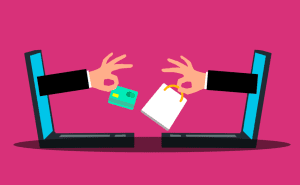A credit limit is the maximum amount of money which can be charged to a revolving credit account. When a credit card is used, the amount spent is subtracted from the limit. This leaves the amount left as the available credit which you are free to spend until the credit limit is reached.
A credit limit is a crucial aspect of credit cards and lines of credit that determines the maximum amount you are allowed to borrow from the lender. They play a significant role in your financial management and impact various aspects of your credit profile. With this in mind, Dollar Hand delves into further detail on how credit limits work, factors that influence the limit, and their implications for your financial well-being.
How Does a Credit Limit Work?
Credit limits are put in place by the bank. The credit limit is the maximum amount of credit which will be available to you once using a credit card or account. As your card or account is used, the amount of available credit left will decrease, demonstrating that you are getting closer to reaching your credit limit. For example, if you have a $5,000 credit limit and you make a $1,000 purchase, your available credit becomes $4,000.
Transactions such as cash advances can also reduce the amount of available credit in your account, therefore meaning you are also getting closer to reaching your credit limit. Credit card issuers require you to make minimum monthly payments on your outstanding balance. As long as your balance is below your credit limit, you can continue using your card up to the remaining available credit.
Credit cards have a revolving credit structure, meaning that once you repay the borrowed amount, your available credit is replenished, and you can use the card again. If you make payments on your credit account monthly, you will move further away from reaching your credit limit, and the amount available to you within your account should increase.
How Is a Credit Limit Determined?
The bank or lender will determine your credit limit by looking at a variety of factors. Lenders will usually assess your credit reports, application and score.
Lenders will be making these assessments through looking at payment history, to see whether you have been able to pay your bills, including making monthly credit payments. They will also be looking at whether you have previously filed for bankruptcy or had debts sent to collections in order to determine an appropriate credit limit.
In addition to this, lenders will assess how many current accounts and loans you have open or ongoing, alongside the account history. Lenders will assess how long these accounts have been open for, and which types of loan products you have recently applied for. They will be required to take into account whether you have recently applied for excess credit through opening additional accounts.
Finally, lenders will assess your debt alongside your income. They will need to see how much you owe and will compare this with how much you earn. This is to check whether you currently make enough money to cover your monthly bills, and how much credit you have available.

What Can You Do If You Are Not Happy With Your Credit Limit?
If you are not happy with your credit limit, you can try to ask for it to be increased. In spite of this, it is important to remember that your lender has decided on your credit limit based on a variety of factors and has decided on a limit they think is appropriate for you.
On occasion, the lender will also alter your credit limit themselves. This means that they can increase or reduce your credit limit, changing the amount which is available for you to use.
What Happens If You Go Over Your Credit Limit?
If you go over your credit limit, it is likely that when you try and use your credit card, it will be declined. In addition to this, you may be charged a fee for exceeding the amount of credit which was offered to you.
Some lenders have an agreement in place whereby you consent to paying a fee every time you exceed your credit limit, but you should be made aware of what these fees will be in advance. It is always important to check how much credit you have available in order to avoid exceeding your credit limit as this will cost you additional money.
How To Responsibly Manage Your Credit Limit
Key ways to responsibly manage your credit limit are summarized in the table below:
| Monitor Your Balance: | Regularly check your credit card balance and available credit to ensure you are not close to your credit limit. |
| Pay On Time: | Making timely payments not only avoids late fees but also helps maintain a positive credit history. |
| Request Increases Wisely: | Some credit card issuers allow you to request a credit limit increase. However, ensure you have a strong credit history and manageable debt before requesting an increase. |
| Use Wisely: | Aim to use a small percentage of your credit limit to maintain a healthy credit utilization ratio. |
Final Thoughts
Understanding how credit limits work is crucial for responsible credit card usage and managing your overall financial health. Your credit limit is based on various factors, including your credit history, income and the lender’s policies.
It impacts your credit score, borrowing capacity and interest costs. By staying within your credit limit, making timely payments, and using your credit responsibly, you can effectively manage your credit accounts and work toward maintaining a positive credit profile.
Was this article helpful?
Justine is a full-time writer with lots of expertise and a wealth of experience in the financial world. In particular, she specializes in household income and consumer finance across the United States. Follow her articles for useful advice and top tips, guides on how to save money and lots more.
